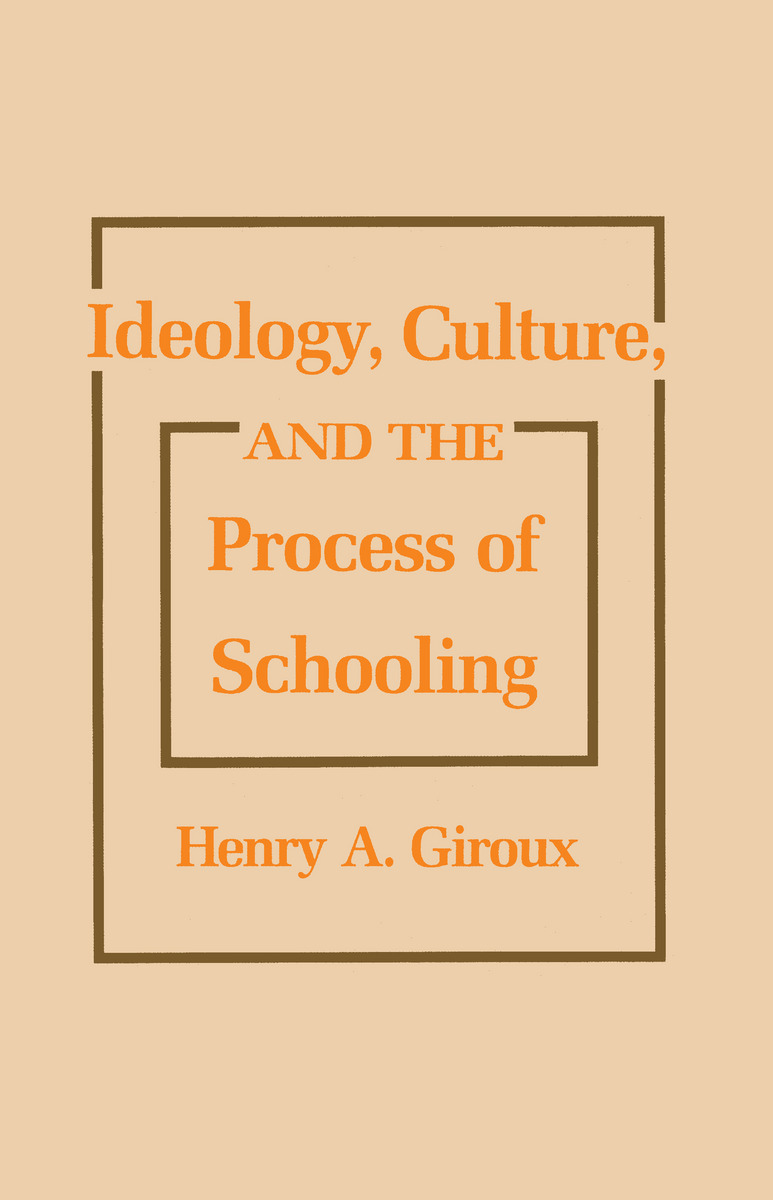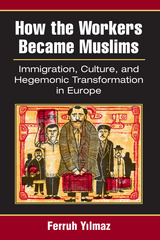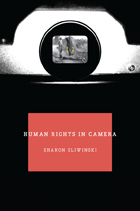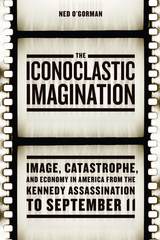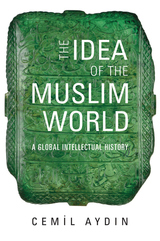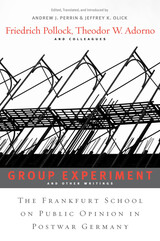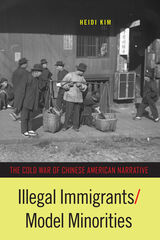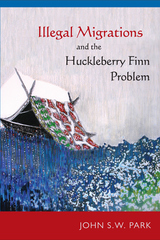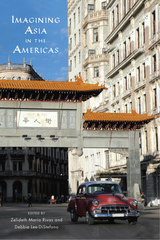Ideology, Culture and the Process of Schooling
Temple University Press, 1984
Paper: 978-0-87722-370-2
See other books on: Culture | Giroux, Henry | Ideology | Process | Schooling
See other titles from Temple University Press
Paper: 978-0-87722-370-2
ABOUT THIS BOOK | REQUEST ACCESSIBLE FILE
ABOUT THIS BOOK
"Giroux is an articulate, sensitive and balanced spokesperson [who] presents a thoughtful analysis of the relationship between knowledge and power and between social context and the school curriculum."
--Norman Henchey, Journal of Educational Thought
This book lays bare the ideological and political character of the positivist rationality that has been the primary theoretical underpinning of educational research in the United States. These assumptions have expressed themselves in the form and content of curriculum, classroom social relations, classroom cultural artifacts, and the experiences and beliefs of teachers and students. Have existing radical critiques provided the theoretical building blocks for a new theory of pedagogy?
The author attempts to move beyond the abstract, negative characteristics of many radical critiques, which are often based on false dualisms that fail to link structure and intentionally, content and process, ideology and hegemony, etc. He also is critical of the over-determined models of socialization and the abstract celebration of subjectivity that underlies much of the false utopianism of many radical perspectives. Professor Giroux begins to lay the theoretical groundwork for developing a radical pedagogy that connects critical theory with the need for social action in the interest of individual freedom and social reconstruction.
"...a useful and important contribution to the area of curriculum theory. Giroux has articulated well some of the major tensions in radical educational theory and practice without abandoning the concern to establish a foundation for emancipatory cage."
--Walter Feinberg, Journal of Education
"Graduate students, as well as their professors, can learn a great deal from studying Ideology, Culture, and the Process of Schooling; furthermore, the excellent system of notes and references at the end of each chapter will introduce the reader into the world of ideas from which Giroux has taken his lessons."
--Educational Studies
--Norman Henchey, Journal of Educational Thought
This book lays bare the ideological and political character of the positivist rationality that has been the primary theoretical underpinning of educational research in the United States. These assumptions have expressed themselves in the form and content of curriculum, classroom social relations, classroom cultural artifacts, and the experiences and beliefs of teachers and students. Have existing radical critiques provided the theoretical building blocks for a new theory of pedagogy?
The author attempts to move beyond the abstract, negative characteristics of many radical critiques, which are often based on false dualisms that fail to link structure and intentionally, content and process, ideology and hegemony, etc. He also is critical of the over-determined models of socialization and the abstract celebration of subjectivity that underlies much of the false utopianism of many radical perspectives. Professor Giroux begins to lay the theoretical groundwork for developing a radical pedagogy that connects critical theory with the need for social action in the interest of individual freedom and social reconstruction.
"...a useful and important contribution to the area of curriculum theory. Giroux has articulated well some of the major tensions in radical educational theory and practice without abandoning the concern to establish a foundation for emancipatory cage."
--Walter Feinberg, Journal of Education
"Graduate students, as well as their professors, can learn a great deal from studying Ideology, Culture, and the Process of Schooling; furthermore, the excellent system of notes and references at the end of each chapter will introduce the reader into the world of ideas from which Giroux has taken his lessons."
--Educational Studies
See other books on: Culture | Giroux, Henry | Ideology | Process | Schooling
See other titles from Temple University Press
